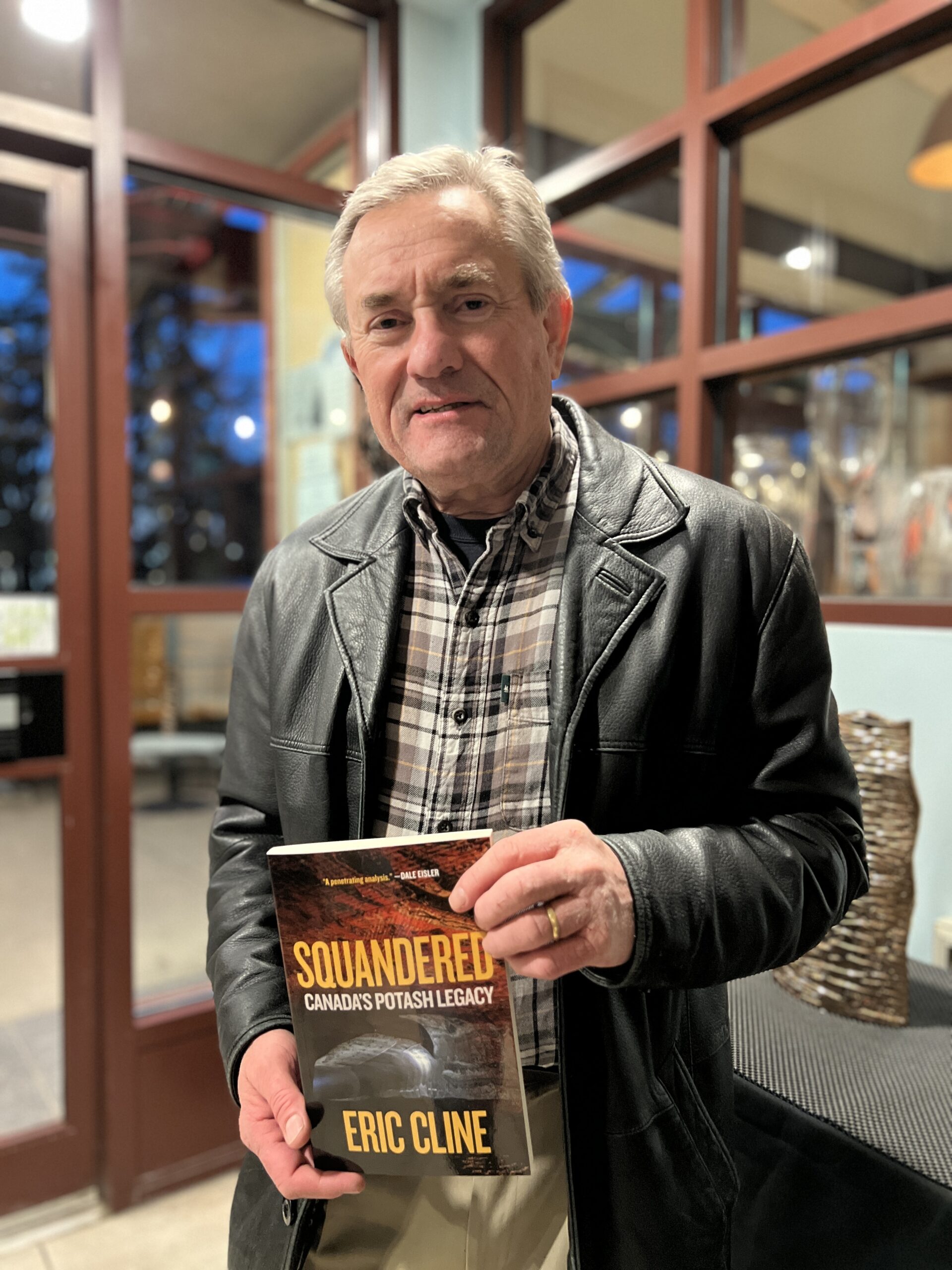
It’s not often we have meaningful discussions on royalties in this province, so I’m giving it a major effort. Some think we should never touch royalties, ever. And the 2009 Stelmach experience in Alberta was telling. So is there ever a time to do it? What about for a new product, like lithium?
I FINALLY completed my vey detailed book review of Eric Cline’s book on potash royalties. Bronwyn Eyre and I discussed it with Eric last Monday for our inaugural Pipeline Online Podcast. The YouTube version is embedded in the story.
Eric Cline’s Squandered: Canada’s Potash Legacy, takes a hard look at royalties. Part 1 #saskatchewan
Jim Warren: How to govern while fiscally handcuffed: don’t follow the example of the Romanow NDP
You don’t see that very often – Saskatchewan’s wind power averaged 89% output on Jan. 24. And it hit 88% the next day.

Two consecutive days of wind speeds sufficient to power the prairie pinwheels. Surely that is a sign of global warming.
How do you want your money, as a government? Through royalties, high-paying jobs, corporate head offices, field offices, equipment purchases, supporting role businesses, overall taxes? Or all of the above?
In Texas, people own royalties on oil & gas. You pay the royalty owner and compensate the land owner (often, it’s the same person). In Ontario, people own royalties on oil & gas assets (ok, not a big industry here). In Alberta it looks like the government. Increasingly in Canada, First Nations will be owning royalties. In Saskatchewan we wrote cheques to people for their royalty ownership. I was surprised how high the royalties were (as in you can make a lot of money off them).
So how much royalty can a project take? First Nations, Federal Government, Provincial Government, Land Owner, Municipal Government, Shareholder, other Stakeholders. Problem is there are always more hands than money to fill them.
In the early 20th Century, the government went around buying up the mineral rights from cash strapped land owners. In the late 20th Century, the government tried to steal the mineral rights from the land owners that didn’t sell.
They did the same with water way access rights. The government tried to develop along a river disregarding that the land owner never relinquished water access. He had to take the government to court and won but it still cost.
Cline seems to purposely exclude the financial mess the government owned potash mines were in in the late 1980s. The bureaucrats with PCS were advancing a 6% annual growth for ever and then the turn down happened. PCS was spending like drunken sailors on some ridiculous projects including a utopian and I mean utopian work environment. Waste and more waste. Management couldn’t manage because of bureaucratic interference. One of the sad results of PCS’s failed experiment was the termination of many employees hired from all over the world in the previous years. These people were fed a line of BS about the future of PCS. A failed NDP socialist experiment as was Romanow’s purchase of the mines. How do I know? I was there.
We have mining royalties in Australia. The individual states get to keep those royalties. This seems to work quite well. People don’t like that arrangement?
I am a 4th generation farmer in Alberta, worked 27 years as a welder,most of which was in pipeline construction and family both in agriculture and oil and gas. Since 2015 I have removed all investments from Alberta and Canada except for the land we still farm. I have seen the cycle swings that are part of the business cycle and the exacerbated effects of government that chooses not to behave in a responsible way. Government employs 21percent of the population consuming more than 50 percent of GTP. WE ARE A COUNTRY OF RISK.